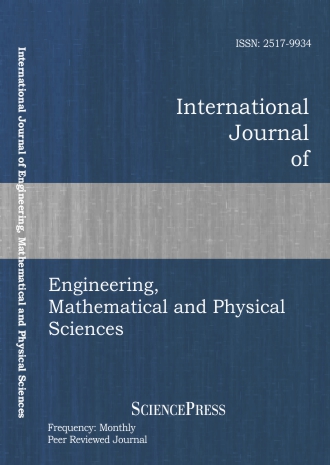
Scholarly
Volume:13, Issue: 5, 2019 Page No: 126 - 131
International Journal of Engineering, Mathematical and Physical Sciences
ISSN: 2517-9934
Jeffrey's Prior for Unknown Sinusoidal Noise Model via Cramer-Rao Lower Bound
This paper employs the Jeffrey's prior technique in the
process of estimating the periodograms and frequency of sinusoidal
model for unknown noisy time variants or oscillating events (data) in
a Bayesian setting. The non-informative Jeffrey's prior was adopted
for the posterior trigonometric function of the sinusoidal model
such that Cramer-Rao Lower Bound (CRLB) inference was used
in carving-out the minimum variance needed to curb the invariance
structure effect for unknown noisy time observational and repeated
circular patterns. An average monthly oscillating temperature series
measured in degree Celsius (0C) from 1901 to 2014 was subjected to
the posterior solution of the unknown noisy events of the sinusoidal
model via Markov Chain Monte Carlo (MCMC). It was not only
deduced that two minutes period is required before completing a cycle
of changing temperature from one particular degree Celsius to another
but also that the sinusoidal model via the CRLB-Jeffrey's prior for
unknown noisy events produced a miniature posterior Maximum A
Posteriori (MAP) compare to a known noisy events.